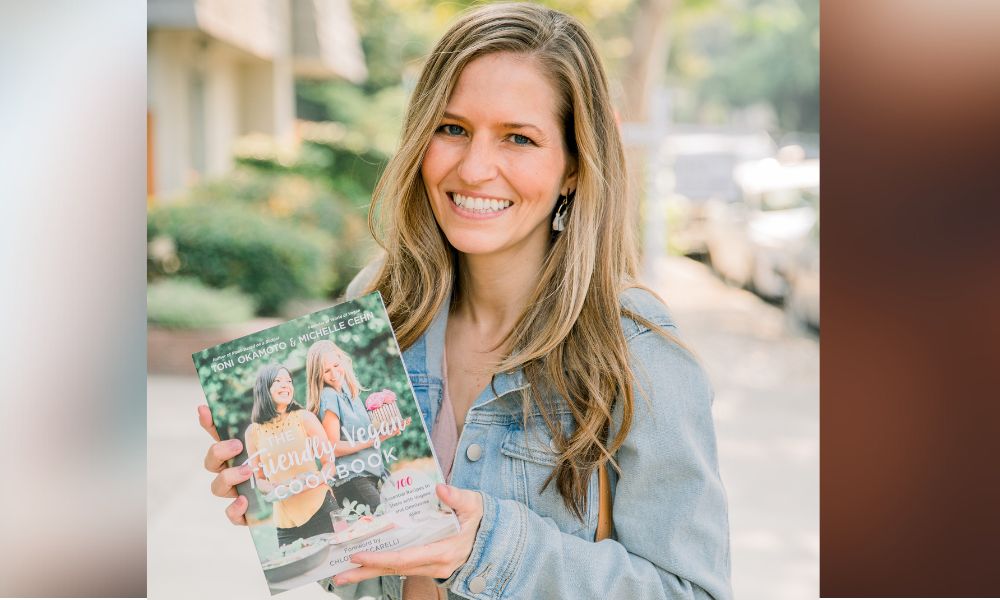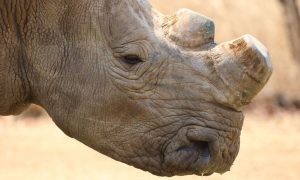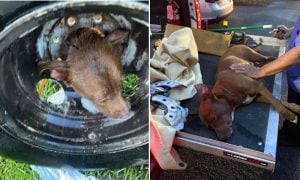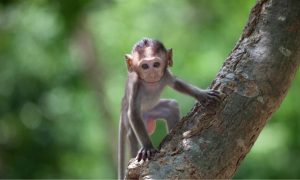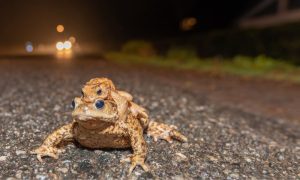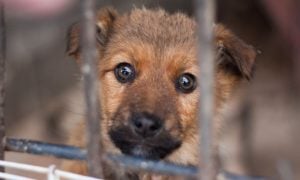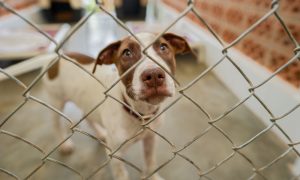Ramen noodles. Pasta. Cereal. Sacrifice. That’s what Michelle Cehn thought she’d be getting when she committed, years ago, to going vegan.
But that’s not what life had in store for her.
Cehn is now the executive director of nonprofit World of Vegan, a successful host of the “Plant-Powered People” podcast, co-author of The Friendly Vegan Cookbook with celebrity vegan chef Toni Okamoto, and a person whose compassionate work has touched thousands of lives.
Her simple but life-changing message is this: Going vegan doesn’t have to be hard or isolating. In fact, in addition to having tremendous mental and physical health benefits, plant-based options can be delicious and even fun.
Cehn told Lady Freethinker (LFT) it all comes down to your mindset.
“If you go into it thinking, ‘This is a sacrifice’ or that you’ll have to ‘give up’ things, it’s probably not going to last or be sustainable,” Cehn said. “But a simple shift in mindset, thinking, ‘I’m going to choose to fill my plate with plants, explore new recipes, get a new cookbook, follow some new blogs and play with food more’ … soon you’ll be coasting, thinking this is awesome and the opposite of sacrifice… and you’ll feel good.”
Numerous scientific studies have linked a plant-based diet to happier health outcomes and less likelihood of acquiring lifestyle-associated diseases, including high blood pressure, Type II diabetes, certain cancers, and even Alzheimer’s.
Most people who go vegan have what Cehn calls “an entry point.” They go vegan for the animals, like she did. They go vegan to improve their health. Some go vegan to help the planet.
But when you dip your toes into the plant-based world, Cehn says you come to realize — you’re helping everything.
“The beautiful thing is that once you step in, you realize that this thing you are doing for animals is also helping our planet, your body, the environment,” she said. “It’s just so easy if you can just shift your mindset to an attitude of abundance and gratitude, excitement, and exploration.”
Cehn and Okamoto’s highly-acclaimed Friendly Vegan Cookbook is a staple for veteran vegans as well as people just starting their journey and looking for easy, affordable, and delicious recipes.
It’s another twist of fate that Cehn finds somewhat amusing, telling LFT that she never meant to be a “chef.”
“I was never a chef, I was never a foodie, I took familiar foods that I loved that were easy to do in my kitchen, and I made sure that they were very well recipe tested and that anyone could do this,” she said. “I think that’s helpful because many people who go vegan don’t want to become a ‘chef.’ They don’t want to go shopping for half their life and cook for half their life. They just want their familiar foods that are made in the easiest way possible.”
The answers in the Q&A below have been edited for length.
To learn more about Cehn and her work, visit her food and lifestyle website World of Vegan, check out her Plant-Powered People podcast, or pick up a copy of her cookbook here. You can also follow her on Instagram, Facebook, YouTube and TikTok.
A Q&A With Michelle Cehn of A World of Vegan and The Friendly Vegan Cookbook
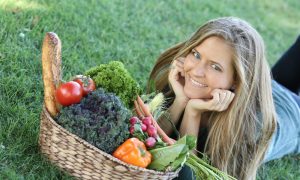
Michelle Cehn (Courtesy of Michelle Cehn/Photo Credit: Kris Joal)
Tell us about your journey from loving animals to actively advocating for them?
I always had a really strong affinity toward animals. When I was young I’d say, “I want to be a veterinarian” when people asked me what I wanted to be because I wanted to dedicate my life to helping animals and I thought that was the only path I could take.
It wasn’t until I was halfway through college that I started seeing community-organized events that were nonprofit-led. At the same time, I picked up a book by Peter Singer called Animal Liberation, which documents what goes on behind closed doors of industries that exploit animals. When you really step back and look at those industries, you realize this is not something you want to be a part of.
I read that book, went vegan, and started to see examples of people who were spending their days trying to help animals in other ways. So I switched my career trajectory at that point and let it be an open road. I went full-heartedly into volunteering and being an advocate at my school.
Why did you decide to go vegan?
I was vegetarian for a long time because I thought that was the most aligned that my food choices could be with my values. It took me until I was in my adulthood to realize that cows are not “magic milk machines” that live on these happy Old MacDonald farms whose “purpose” is to produce milk that we (humans) drink — that no, a cow has to be pregnant to produce milk and that she produces that milk for her baby, just like a human mother does.
The industry practices beyond that are just horrific. To impregnate cows, the industry uses what they term a “rape rack,” where cows’ heads are literally put between bars so they can’t move while a human being artificially inseminates them. Then their babies are born and taken away — often within a few days, sometimes in a few hours — and many of the moms are bellowing or won’t eat for days or sometimes even weeks because it’s true heartbreak.
A lot of the male calves, because they don’t have value in being able to become milk machines one day, are often sent to veal farms or are put into veal crates where they are killed as babies and sold. A lot of people don’t connect that the veal industry exists because of the dairy industry.
Was it hard at the beginning for you to commit to being vegan?
I went vegan at a time when there weren’t a lot of vegan options. It was so hard, which was what launched me into this line of work. I saw how hard it was for me, and I thought, “No one else is going to do this if it’s this hard.”
I came at it from an angle that is now the opposite approach that I share with people. When I learned about what was happening in these industries, I was like, “I do not care if I never eat again, I am not participating in this.”
All the staples in my diet at the time — all the cheese, the egg and cheese bagel sandwiches — all those went away, and I did not know what to fill my plate with instead. So in the beginning, it did feel very sacrificial, and I felt really alone in it. It was very hard to get people to participate or care, and I didn’t know the best way to do outreach.
But then I started researching how I could go vegan as healthfully as possible, and I started to realize that I could not only survive but bring color into my diet and all these amazing foods that are on the periphery of the grocery store. And it turned out to be such a health gift. Studies have shown how being vegan can help prevent and reverse heart disease, prevent Type II diabetes, help people live longer, prevent Alzheimer’s… there are all these benefits I started learning about.
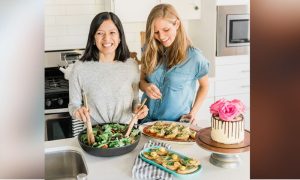
Toni Okamoto and Michelle Cehn (Courtesy of Michelle Cehn)
Do you think the world has changed since then for people trying to go vegan?
It’s been a beautiful thing to witness how fast we evolve and how different it is now. It’s so easy to go vegan! All the products, all the companies, anything you want to eat — there is a vegan version, and it’s pretty good!
Your journey has included some visits to farmed animal sanctuaries — tell us about some of the experiences you’ve had there?
Cows, especially, have become my absolute favorite animal. I adore cows. They are such gentle, giant sweethearts. You can see them when they are younger and they act like puppies. You give them a ball and they will play with the ball with their noses. Then, as they grow bigger, they put their heads against you just like a horse would. They’re just so gentle.
I went vegan before I met a cow for the first time, which happened when I went to an event at Farm Sanctuary in New York. That was the first time I was surrounded by people who had a love and a sensitivity for animals but also an understanding of what the world does to them and who were choosing actively to not participate in that by being vegan.
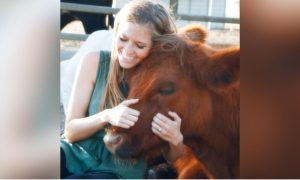
(Courtesy of Michelle Cehn)
You write in your cookbook that going vegan shouldn’t be difficult or isolating. Can you speak more to the importance of finding a supportive community?
Community is everything. You either need community or you’re going to need a really good therapist — which is a way more expensive route.
If you go vegan and you feel like it’s really hard, chances are you’re not feeling like you are in a community. If you have even just one friend who you are doing it with, who you can share the highs and the lows with and vent about how many times you’re asked about protein, it suddenly becomes a million times easier.
Having that camaraderie is key. If you don’t have a vegan community in your city, you can start one or find one online. Pick your topic, pick your focus — animals, health, environment — it’s all out there.
What advice do you have for people making the shift to vegan?
A lot comes down to planning and learning the tricks and tips early: Always be prepared and always have food on you, for example. I always had snacks on me in college so I wouldn’t go to a vending machine and grab what was convenient. Now, if I go to a wedding, I have snacks on me.
You can’t be vegan without developing a thick skin. You also have to have an amount of willpower to be ok to be different and to know you are doing what matters to you and what you believe is right. It’s character building in that sense.
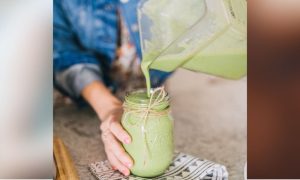
(Courtesy of Michelle Cehn)
How do you take care of yourself so you can sustain your advocacy?
I felt that fire that many advocates in any cause feel and thought I’d never burn out — and I exhausted myself. Every inch of my life was going toward doing something. I’m grateful I did that when I had the energy, but eventually most people hit a point where you do burn out. When your life becomes so much about serving, you can start to lose a sense of self care and your own right to live your life.
It’s very important to maintain a sense of self and an existence outside of advocacy. Keep enough space in your life so that you can take care of yourself, and remember that you are not shouldering this alone. Doing a little every day adds up to a massive difference.
Any final thoughts you’d like to share with readers?
I’d love to leave readers with the message that whether you’re vegan or 95 percent or 85 percent vegan — the perfection of being vegan is not what matters most. Eat more plants. Learn more. Watch a documentary. Read a book. We have tons of resources that might save your life or your family’s lives that will leave you feeling empowered, inspired, and eager to make a change. Take these little tiny steps, and you don’t have to put any sort of label on it. Do the best with what you know every day.

